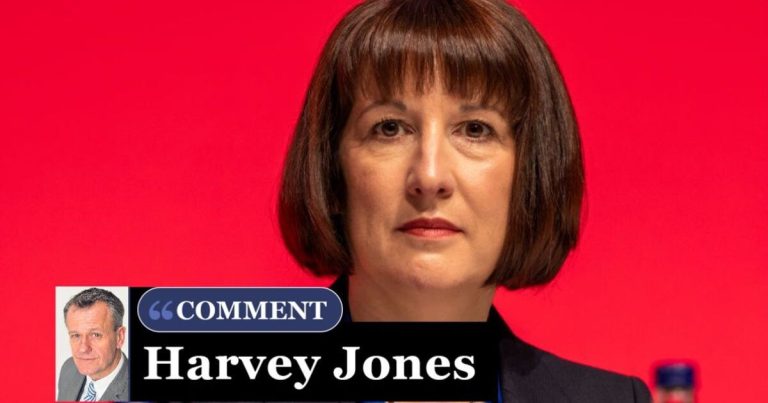
The latest GDP figures indicate the UK economy has gone into recession.
GDP is estimated to have fallen 0.3 percent in the fourth quarter of 2023, from October to December, after a 0.1 percent fall in the previous quarter.
The drop in GDP for the fourth quarter included a 0.2 percent fall in services, a 1.3 percent drop in construction and a 1 percent drop in production.
Liz McKeown, director of economic statistics at the Office for National Statistics (ONS), said: “While it has now shrunk for two consecutive quarters, across 2023 as a whole the economy has been broadly flat.
“All the main sources fell on the quarter, with manufacturing, construction and wholesale being the biggest drags on growth, partially offset by increases in hotels and rentals of vehicles and machinery.”
Consumer-facing services experienced a 0.7 percent fall in the fourth quarter, driven by falls in the food and drinks services and retail sectors. This offset growth in accommodation services, especially hotels.
GDP as a whole for 2023 is estimated to have increased 0.1 percent compared to 4.3 percent growth in 2022.
This is the lowest yearly growth since the financial crisis of 2009 not including 2020, which was impacted by the COVID-19 pandemic.
Julian Jessop, economics fellow at the Institute of Economic Affairs, said the figures showed a “grim picture” of the state of the economy.
Alice Haine, personal finance analyst at Bestinvest by Evelyn Partners, said: “A recession has repercussions for people’s finances as a weaker economy can cause earnings to stagnate and redundancies to rise as businesses focus on cutting costs rather than investing in expansion and new hires.
“A downturn, albeit mild, will certainly be a cause for concern for people whose household finances have already been battered by a barrage of rising bills over the past two years.
“The weak growth data will pile pressure on the Bank of England to cut interest rates sooner rather than later to bolster the economy, which has been heavily impacted by high inflation and still-high borrowing costs. Fourteen interest rate rises between December 2021 and August 2023 are clearly taking their toll on consumers with retail sales growing by an annual rate of 1.7% in December, down from 2.7% in November, as people restrained
expenditure over the typically lucrative festive period.
He said: “Many other countries have slipped into recession too, data may be revised, leading indicators already improving – but the profile of GDP over 2023 paints a grim picture of the state of the UK economy.”
Alice Haine, personal finance analyst at Bestinvest by Evelyn Partners, said: “A recession has repercussions for people’s finances as a weaker economy can cause earnings to stagnate and redundancies to rise as businesses focus on cutting costs rather than investing in expansion and new hires.
“A downturn, albeit mild, will certainly be a cause for concern for people whose household finances have already been battered by a barrage of rising bills over the past two years.
“The weak growth data will pile pressure on the Bank of England to cut interest rates sooner rather than later to bolster the economy, which has been heavily impacted by high inflation and still-high borrowing costs.
“14 interest rate rises between December 2021 and August 2023 are clearly taking their toll on consumers with retail sales growing by an annual rate of 1.7 percent in December, down from 2.7 percent in November, as people restrained expenditure over the typically lucrative festive period.”
Manufacturing output was down 0.9 percent in the fourth quarter after four quarters of consistent growth.
There was a seven percent drop in the manufacture of machinery and equipment and a 4.7 percent decline for the manufacture of rubber and plastic products, and other non-metallic mineral products.
Despite the weak economy, Ed Monk, Associate Director at Fidelity International, encouraged those with investments to hold the course.
He said: “History shows short-term economic ups and downs have little to do with performance in the stock market.
“Markets tend to be forward looking and investors will already be seeing past data on recent economic performance.”
More to follow…








